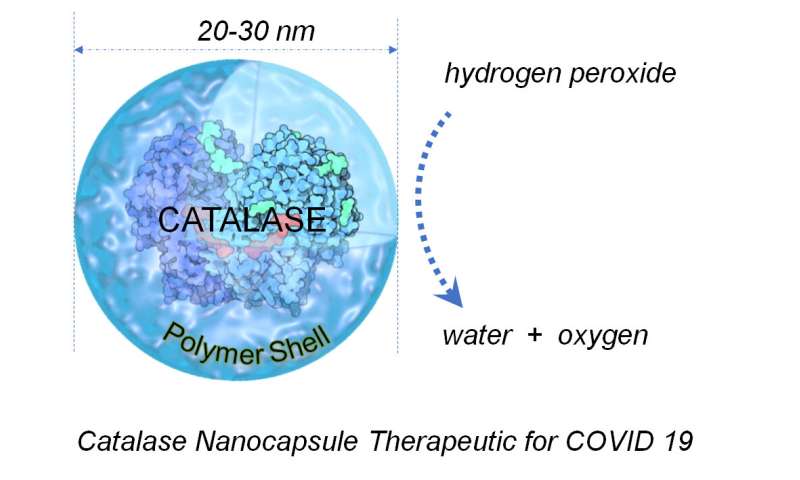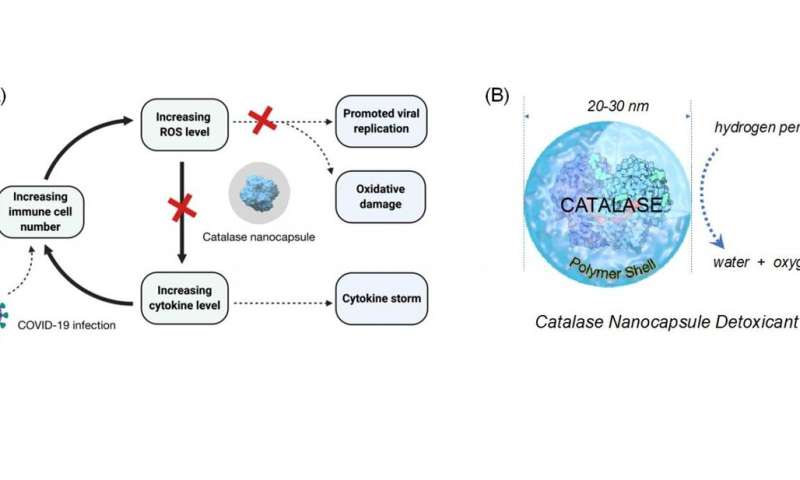
Researchers from UCLA and China have found that catalase, a naturally occurring enzyme, holds potential as a low-cost therapeutic drug to treat COVID-19 symptoms and suppress the replication of coronavirus inside the body. A study detailing the research was published in Advanced Materials.
Catalase is produced naturally and used by humans, animals and plants. Inside cells, the antioxidant enzyme kick starts the breakdown of hydrogen peroxide, which can be toxic, into water and oxygen. The enzyme is also commonly used worldwide in food production and as a dietary supplement.
“There is a lot of focus on vaccines and antiviral drugs, and rightly so,” said Yunfeng Lu, a UCLA Samueli School of Engineering professor of chemical and biomolecular engineering and a senior author on the study. “In the meantime, our research suggests this enzyme could offer a very effective therapeutic solution for treatment of hyperinflammation that occurs due to SARS-CoV-2 virus, as well as hyperinflammation generally.”
Lu’s group developed the drug-delivery technology used in the experiments. Three types of tests were conducted, each addressing a different symptom of COVID-19.
First, they demonstrated the enzyme’s anti-inflammatory effects and its ability to regulate the production of cytokines, a protein that is produced in white blood cells. Cytokines are an important part of the human immune system, but they can also signal the immune system to attack the body’s own cells if too many are made—a so-called ‘cytokine storm’ that is reported in some patients diagnosed with COVID-19.
Second, the team showed that catalase can protect alveolar cells, which line the human lungs, from damage due to oxidation.
Finally, the experiments showed that catalase can repress the replication of SARS-CoV-2 virus in rhesus macaques, a type of monkey, without noticeable toxicity.

“This work has far-reaching implications beyond the treatment of COVID-19. Cytokine storm is a lethal condition that can complicate other infections, such as influenza, as well as non-infectious conditions, like autoimmune disease,” said Dr. Gregory Fishbein, an author on the study and a pathologist at the UCLA David Geffen School of Medicine.


Leave a Reply
You must be logged in to post a comment.